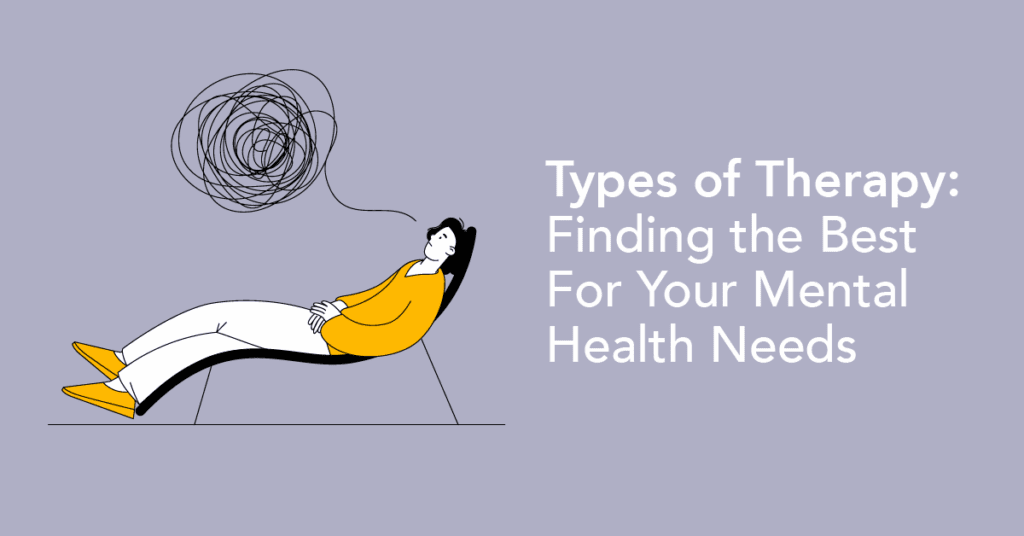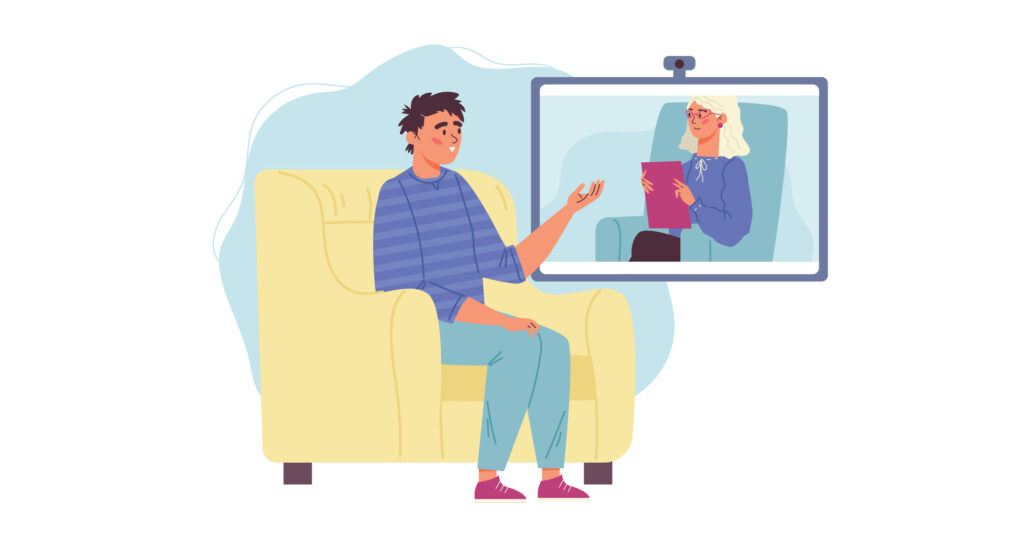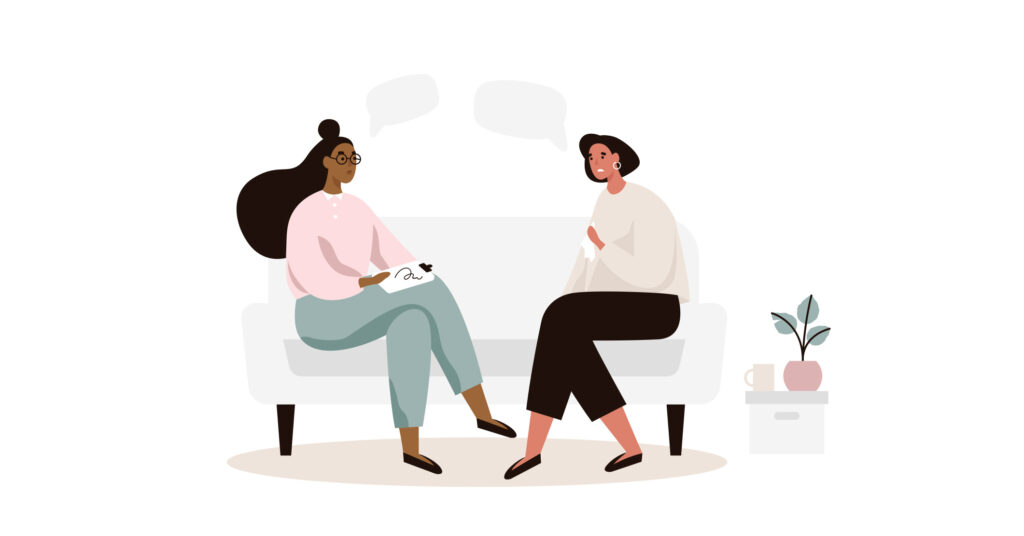Therapy is one of the best investments you can make for your mental health. When you work with the right therapist, counseling can help you address any current mental health concerns and learn coping tools to address future problems. But there are many types of therapy modalities out there. Part of starting your therapy journey will be figuring out what kind of therapy works best for you.
Overview of Popular Therapy Modalities
There are many types of therapy modalities, including subgenres in each category. However, it can be overwhelming to get to that level of detail. Instead, understanding the basics is a good starting point.
Here are the five most common types of therapy.
- Psychodynamic Therapy
Psychodynamic is a type of talk therapy that focuses primarily on exploring the unconscious mind and past experiences to develop better self-awareness. This style looks to uncover repressed emotions and unconscious beliefs to help facilitate healing.
Psychodynamic therapy is a popular option for conditions such as eating disorders, relationship issues and post-traumatic stress disorder. - Cognitive Behavioral Therapy (CBT)
Cognitive behavioral therapy is one of the most common types of talk therapy. This therapy style is goal-oriented and structured, focusing on the here and now. A therapist will work with you to help you change how you act, feel and perceive things for a more positive outcome.
CBT is often recommended to treat issues such as anxiety, depression and substance abuse disorders. - Group Therapy
As the name implies, group therapy is talk therapy in which one therapist works with a small group of individuals. The sessions are communal, with people in the group sharing their experiences and thoughts. The counselor responds to each individual publicly and discusses the learnings with the group.
Often, group therapy brings together people who are struggling with a similar issue, such as PTSD or alcohol disorder. The goal is for the participants to hear from one another, feel connected and supported and learn from shared experiences.
Group therapy can be a fantastic option for treating substance abuse disorder, PTSD and other mental health conditions. - Humanistic Therapy
Humanistic therapy is a type of talk therapy that focuses on the person’s ability for growth. This type of therapy highly prioritizes a client-therapist relationship and emphasizes that anyone can improve themselves. Humanistic therapy doesn’t believe in grouping people based on similar symptoms. The therapist will focus on the patient’s positive traits and help them go on a journey of self-discovery that will foster healing and growth.
Humanistic therapy is often used to treat conditions such as depression, anxiety and personality disorders. - Integrative Therapy
Integrative therapy is a holistic approach in which the therapist uses more than one therapy module. They tailor their treatment plan and combine aspects of different modalities as appropriate. It’s called integrative therapy because it considers the patient’s mental, physical and emotional health. Integrative therapy allows the therapist to be flexible in their approach and alter their style as needed.
An integrative approach can be used to treat a range of mental health conditions, such as personality disorders, substance use disorders and depression.
How Different Types of Therapy Address Different Needs
The type of therapy that works best for you will likely depend on what you’re trying to work through. For example, someone who has PTSD from childhood trauma might need psychodynamic therapy, which focuses on past experiences and repressed emotions. Alternatively, someone who is struggling with a drug addiction might benefit from CBT and group therapy to learn coping strategies.
Additionally, some people might respond more strongly to certain therapy styles than others. For example, someone who is shy in social situations might not enjoy group therapy. It’s important to find the therapy style that makes you feel comfortable and gives you the tools to address your concerns.
Therapy for Individuals vs. Groups vs. Families
Therapy isn’t always one therapist with one client; couples counseling, family therapy and group therapy are all used. The therapy style used in your one-on-one sessions doesn’t have to be the same as the one used in your coworking sessions. Your one-on-one sessions will cater to your preferred therapy style, but in a group, couple or family setting, the style usually has to match what works for most of the group.
What to Consider When Selecting a Type of Therapy
It can be hard to know what therapy style will work for you until you’ve experimented and tried it. The good news is that you can keep trying styles until you find the one that resonates best.
Here are a few questions you can ask yourself to help identify which therapy type might be the best match:
- What are you struggling with?
- What are your goals and objectives for therapy?
- What kind of relationship do you want to have with your therapist?
- Do you want to work through the past, or do you want to focus on the here and now?
- Do you prefer one-on-one therapy, or do you like the idea of a shared therapy experience?
Finding a Therapist Who Matches Your Goals
You might be wondering at this point, “What kind of therapist do I need?” Well, if you’ve identified the style of therapy you want to try, you need a therapist who practices that approach.
But there are a few other things to consider when you’re trying to match with a therapist:
- Specialty. If you’re struggling with a specific mental health condition, such as an eating disorder or substance abuse, you may want to find a therapist who specializes in treating that condition.
- Experience. Are you comfortable with a young therapist who just graduated from school, or would you prefer someone who’s been practicing for years?
- Location. Are you comfortable with telehealth therapy? If not, you’ll need to find a therapist within driving distance.
Remember that therapy can only work if you feel comfortable opening up and being transparent with your counselor. If you’re not clicking with a therapist, simply try someone new.
The most important thing is to start trying. It’s estimated that a little over half of Americans with a mental health condition receive treatment. When you find the right therapy solution, treatment can be life-changing.
Mental Health Hotline Connects You to Compassionate Professionals
Ready to take the leap and speak to a qualified therapist near you? Mental Health Hotline partners with reputable mental health care providers nationwide. Make the call and connect with a therapist soon.


